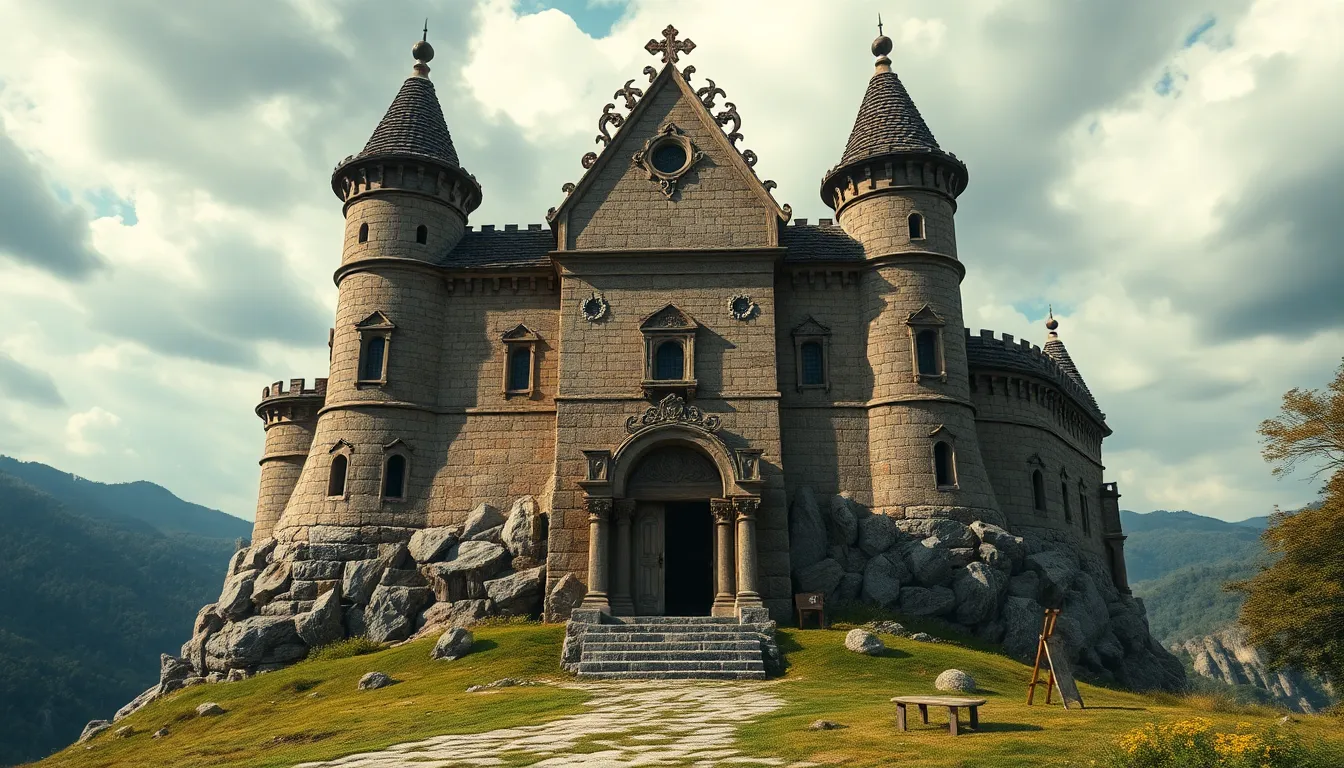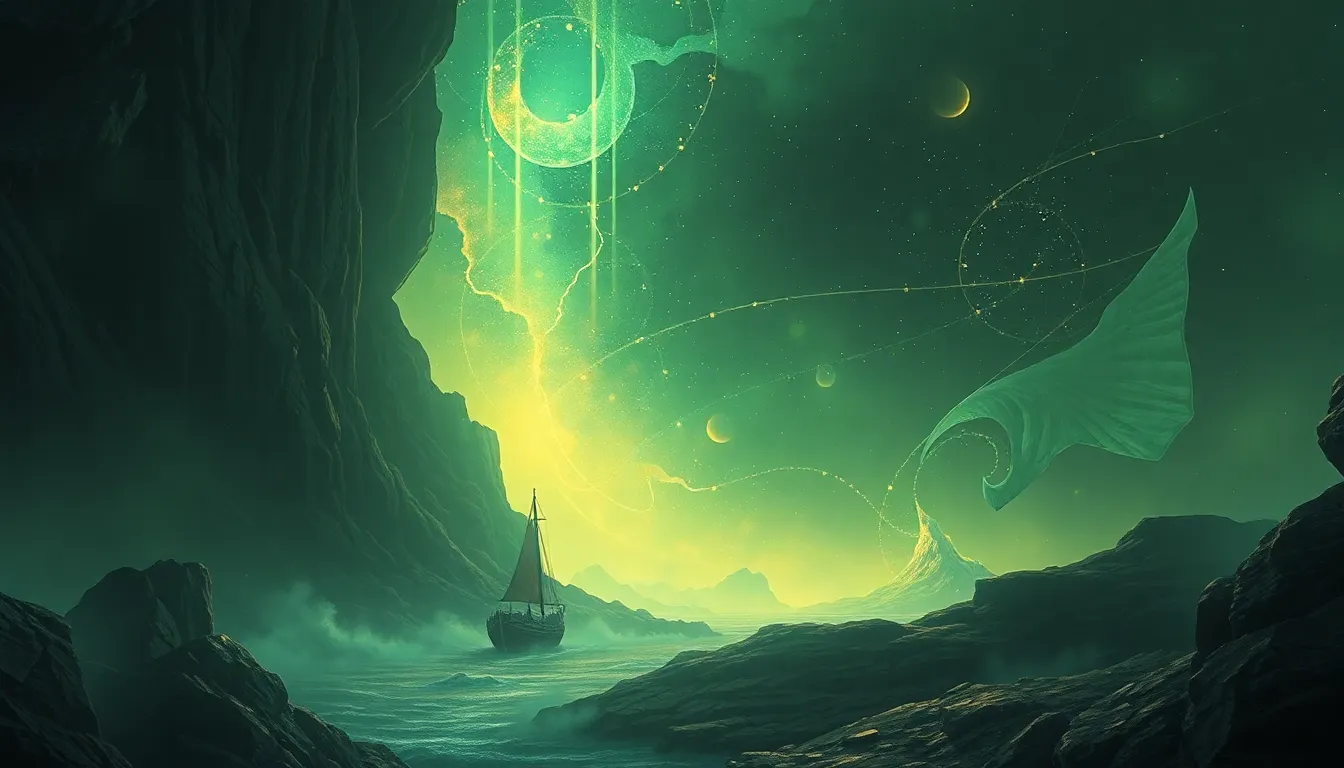The Mythical Kingdom of the Basque: Unraveling Ancient Legends
I. Introduction
The Basque region, nestled between Spain and France, is a land rich in cultural significance and historical depth. With its unique language, Euskara, and a distinct identity that sets it apart from its neighbors, the Basque people have cultivated a vibrant culture steeped in traditions, customs, and myths.
Mythology plays a crucial role in shaping Basque identity, serving as a lens through which the people understand their history, values, and the natural world around them. This article aims to unravel the intricate tapestry of Basque mythology, exploring its deities, legendary creatures, and the cultural practices that keep these ancient stories alive.
II. Historical Context of the Basque People
A. Origins and early history of the Basque nation
The origins of the Basque people are shrouded in mystery, with theories suggesting they are one of the oldest populations in Europe. Genetic studies indicate that Basques have a distinct lineage, possibly dating back to the prehistoric Iberians. The region’s isolation, characterized by rugged mountains and deep valleys, has preserved their unique culture and language over millennia.
B. The geographical landscape and its influence on culture
The Basque Country’s geographical features—its mountains, forests, and coastline—have played a significant role in shaping the Basque way of life. The landscape has inspired countless myths and stories, with many deities and creatures said to inhabit these natural spaces. The connection between the people and their environment is a recurring theme in Basque mythology.
C. Key historical events that shaped Basque mythology
- The Roman conquest, which led to the integration of Basque lands into the Roman Empire.
- The rise of the Kingdom of Navarre, a significant political entity in the medieval period.
- Various uprisings and conflicts throughout history, including the Carlist Wars, that fostered a strong sense of identity and myth-making among the Basques.
III. Key Deities and Mythical Figures
A. Overview of major deities in Basque mythology
Basque mythology is populated with a pantheon of deities and mythical figures, each representing different aspects of nature and human experience. These deities often embody the principles of balance, fertility, and protection.
B. The importance of Mari, the Earth Goddess
Mari, the Earth Goddess, stands as the central figure in Basque mythology. Revered as a powerful and nurturing force, she is often depicted as a beautiful woman who controls the weather and the fertility of the land. Mari’s duality—both nurturing and fierce—reflects the complexities of nature itself.
C. Other notable figures: Olentzero, the Basque Father Christmas
Olentzero is a beloved figure in Basque folklore, often associated with Christmas celebrations. He is depicted as a jolly, bearded man who brings gifts to children. His story, deeply rooted in agricultural traditions, reflects themes of renewal and the changing seasons.
IV. Creation Myths and Cosmogony
A. Exploration of Basque creation stories
Basque creation myths often center around the themes of nature and the cosmos. One notable story involves the creation of the world through the actions of Mari and other celestial beings. These narratives emphasize the interconnectedness of all living things.
B. The significance of the natural world in these myths
The natural world is integral to Basque creation myths, with mountains, rivers, and forests often personified as divine entities. This perspective fosters a deep respect for nature, influencing the Basque people’s relationship with their environment.
C. Comparisons with other regional creation myths
When comparing Basque creation myths with those from neighboring regions, similarities emerge, particularly in the reverence for nature and the role of deities. However, the Basque narratives retain unique characteristics that reflect their distinct cultural heritage.
V. Legendary Creatures of the Basque Mythos
A. The Basajaun: Guardian of the Forest
The Basajaun, a mythical being resembling a wild man, is considered the guardian of the forests. He is often portrayed as a protector of wildlife and nature, embodying the spirit of the wilderness.
B. The Lamia: The enchanting water spirit
The Lamia is a captivating creature of Basque folklore, often depicted as a beautiful woman with the lower body of a fish. She is a symbol of the mysterious and alluring nature of water, often associated with both danger and enchantment.
C. Other notable creatures and their cultural significance
- Jentilak: Giant beings believed to have built megalithic structures, representing strength and endurance.
- Txakurra: Mythical dogs that serve as protectors of the home and guide souls.
- Akela: A wolf-like creature symbolizing the wild and untamed aspects of nature.
VI. Folklore and Oral Traditions
A. The role of storytelling in preserving Basque legends
Storytelling has been a vital tradition in Basque culture, serving as a means of passing down legends and myths from generation to generation. Oral traditions are not just entertainment; they are a way to instill values and cultural identity.
B. Analysis of popular folktales and their moral lessons
Many Basque folktales contain moral lessons, teaching the importance of community, respect for nature, and the consequences of one’s actions. These stories often feature relatable characters who face challenges and learn valuable life lessons.
C. How oral traditions contribute to Basque identity
The preservation of oral traditions strengthens Basque identity, as these stories create a shared sense of belonging and continuity among the people. They serve as a reminder of the rich cultural heritage and the resilience of the Basque spirit.
VII. Festivals and Celebrations Rooted in Myth
A. Overview of traditional Basque festivals
Basque festivals are vibrant celebrations that often incorporate elements of mythology and folklore. These events are marked by music, dance, and traditional costumes, bringing the community together to honor their heritage.
B. The connection between mythology and contemporary celebrations
Many contemporary Basque festivals draw on ancient myths and legends, creating a bridge between the past and present. This connection reinforces cultural identity and fosters a sense of pride among the Basque people.
C. Case studies: Aste Nagusia and other significant festivals
- Aste Nagusia: A week-long festival in Bilbao celebrating the city’s patron saint, featuring parades, concerts, and traditional food.
- San Sebastián Day: A celebration of the city’s patron, often incorporating elements of Basque mythology and folklore.
VIII. The Influence of Mythology on Basque Art and Literature
A. How ancient legends inspire modern Basque artists
Contemporary Basque artists often draw inspiration from the rich tapestry of mythology, incorporating traditional motifs and themes into their work. This artistic expression serves to keep the legends alive and relevant.
B. Analysis of literary works drawing on Basque mythology
Many Basque writers explore themes from mythology in their literature, weaving tales that reflect the struggles, triumphs, and cultural identity of the Basque people. These works contribute to a deeper understanding of the Basque psyche.
C. The impact of mythology on regional crafts and visual arts
Mythological themes also permeate Basque crafts, from pottery to textiles, where traditional designs often reflect the stories of gods and creatures from the past. This connection enhances the cultural richness of the region’s artistic output.
IX. Contemporary Relevance of Basque Myths
A. The resurgence of interest in Basque culture and mythology
In recent years, there has been a renewed interest in Basque culture and mythology, as younger generations seek to reclaim and celebrate their heritage. This resurgence is reflected in cultural festivals, academic research, and artistic endeavors.
B. Mythology’s role in contemporary Basque nationalism
Mythology plays a significant role in contemporary Basque nationalism, as it provides a narrative framework for asserting cultural identity and autonomy. Myths serve as symbols of resistance and resilience, uniting the Basque people in their quest for recognition.
C. How myths are adapted and reinterpreted in modern society
Modern interpretations of Basque myths often reflect contemporary values and issues, allowing for a dynamic reinterpretation of these ancient stories


